Tags
Africa, Albigensians, antiphonal, antiphons, Aragon, Barcelona, Beatus, Blessed Virgin Mary, captive, captives, captivity, chant, Christian, crusade, Dante, Dept. of Art & Art History, Elizabeth Peterson, Feast of Saint Peter Nolasco, Florence, fragment, France, Franciscan, Granada, hymn, hymns, Italy, James T Svendsen, justice, King James I, Languedoc, Latin, lauds, manuscripts, medieval, Mercedarian Breviary, music, Order of Mercedarians, parchment, Peter, Piettro Pettinari, poor, Pope Urban VIII, prisoners, Proper of Saints, psalm, Psalm 1, Psalm 106, Psalm 20, Psalm 4, Purgatorio, Saracens, St. Peter of Nolasco, St. Raymond of Penafort, The University of Utah, Utah Museum of Fine Arts, Valencia, vernacular, Vespers
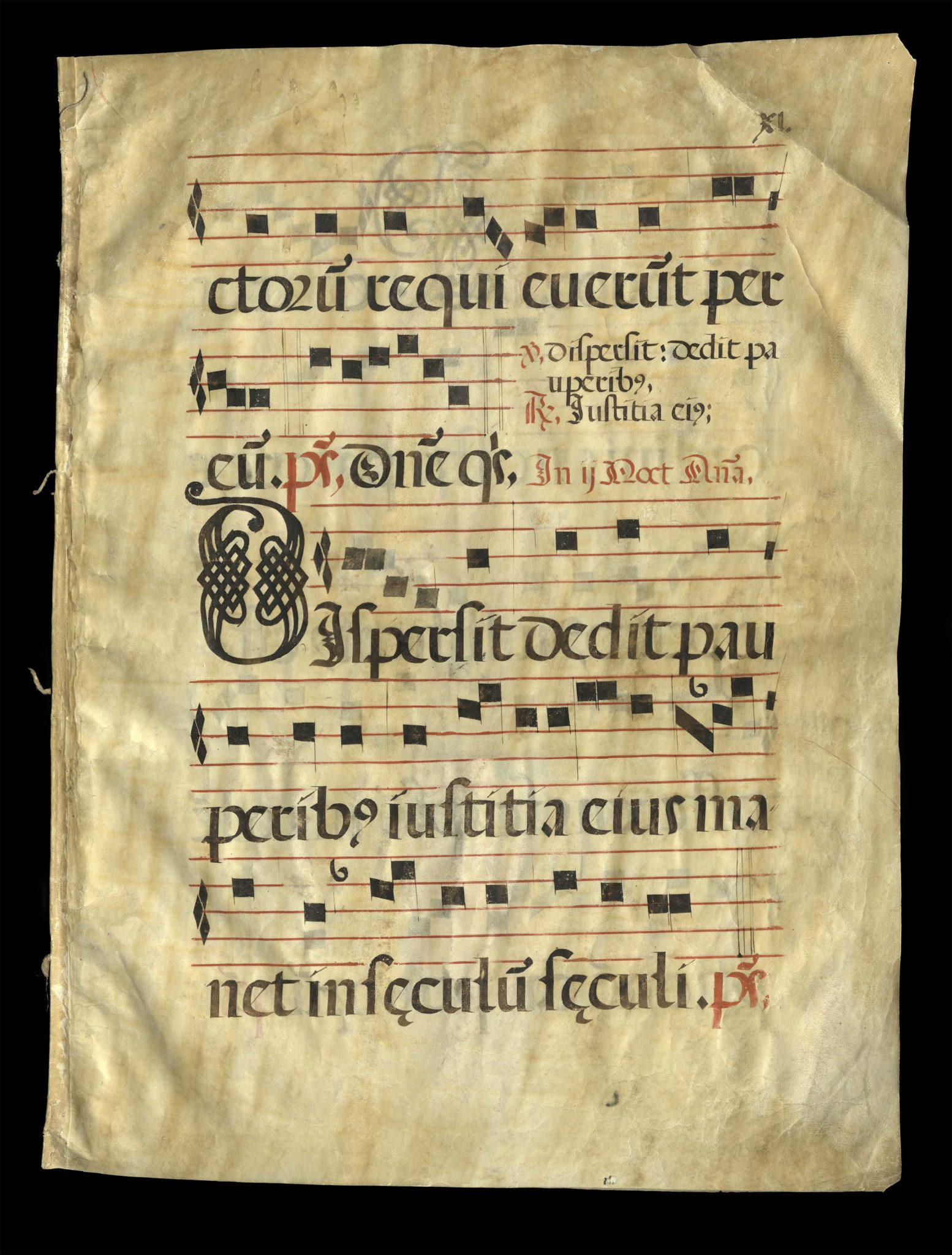
(san)ctoru(m) requieverunt per
eu(m). Ps. D(omi)ne… V. Dispersit, dedit pauperibus
R. lustitia…
Dispersit, dedit pau-
peribus
iustitia ma-
net in seculu(m) seculi.
of the holy found rest through
him. PS O Lord V. He distributed, he gave to the poor…
R. His justice…
He distributed, he gave to the
poor; his justice
remains forever.
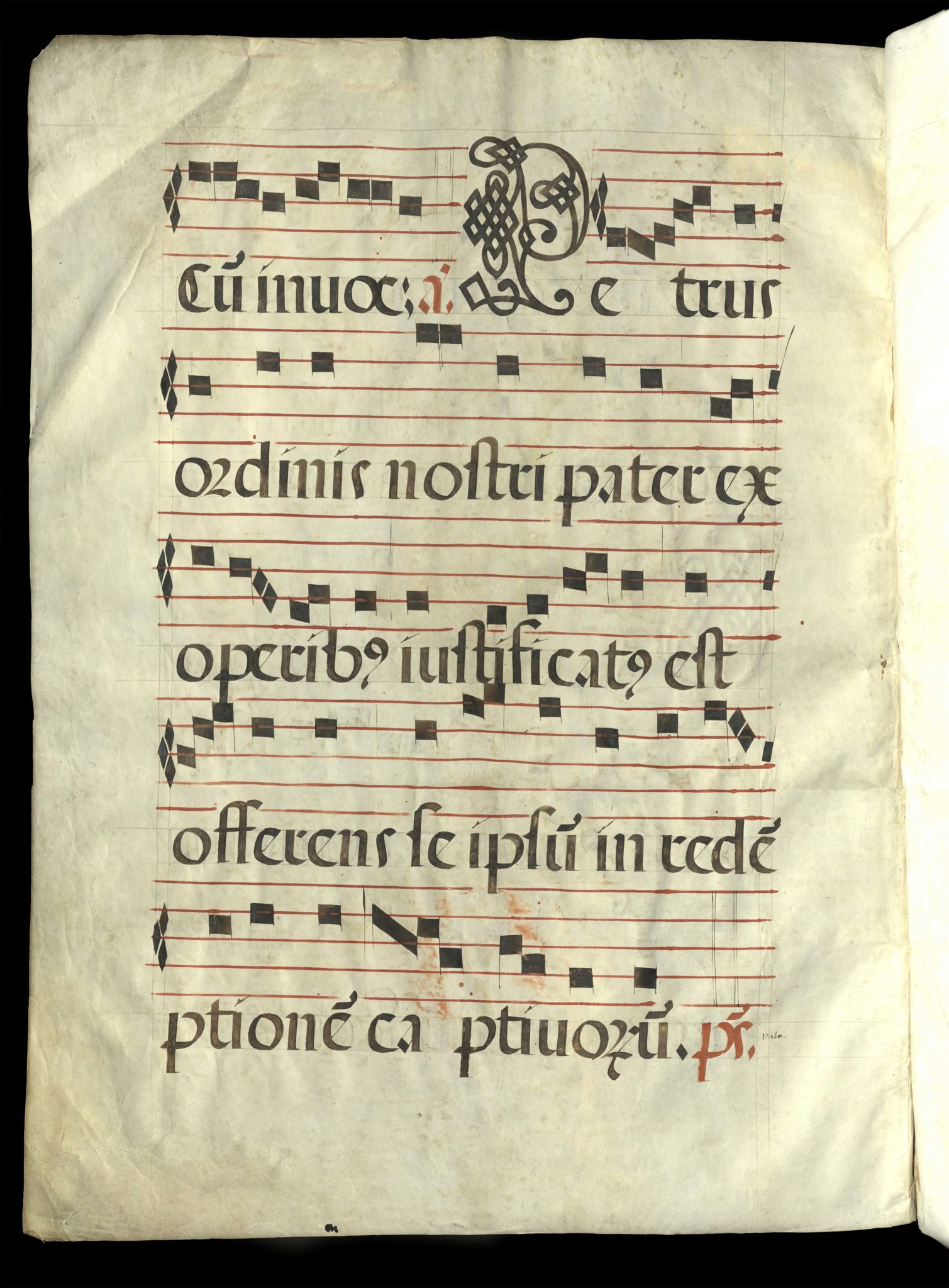
Cum invocarum… Petrus
ordinis nostri pater ex
operibus iustificatus est
offernes seipsum in rede(me)p-
tione(m) captivoru(m). Ps.
When I was calling upon… Peter,
the father of our order, was justified by his works,
offering himself for the ransoming of captives. Psalm.

Verb… m… A(men) Pergebat
ad o(m)nes qui in captivi-
tate erant et monita sa-
lutis dabat eis. Ps. D(omi)ne (in vertute tua…)
V. Salvavit eos de (manu odientium)
R. Et redemit eos (de manu inimici)
In tertio Noc(urno) A(men) Captivorum
He proceeded
to all who were in captivity
and gave to them counsels
about salvation. Psalm O Lord, in your power…
Verse. He saved them from the hand of those hating them…
Response. And he redeemed them from the hand of the enemy
Sung at the third Nocturn Captives
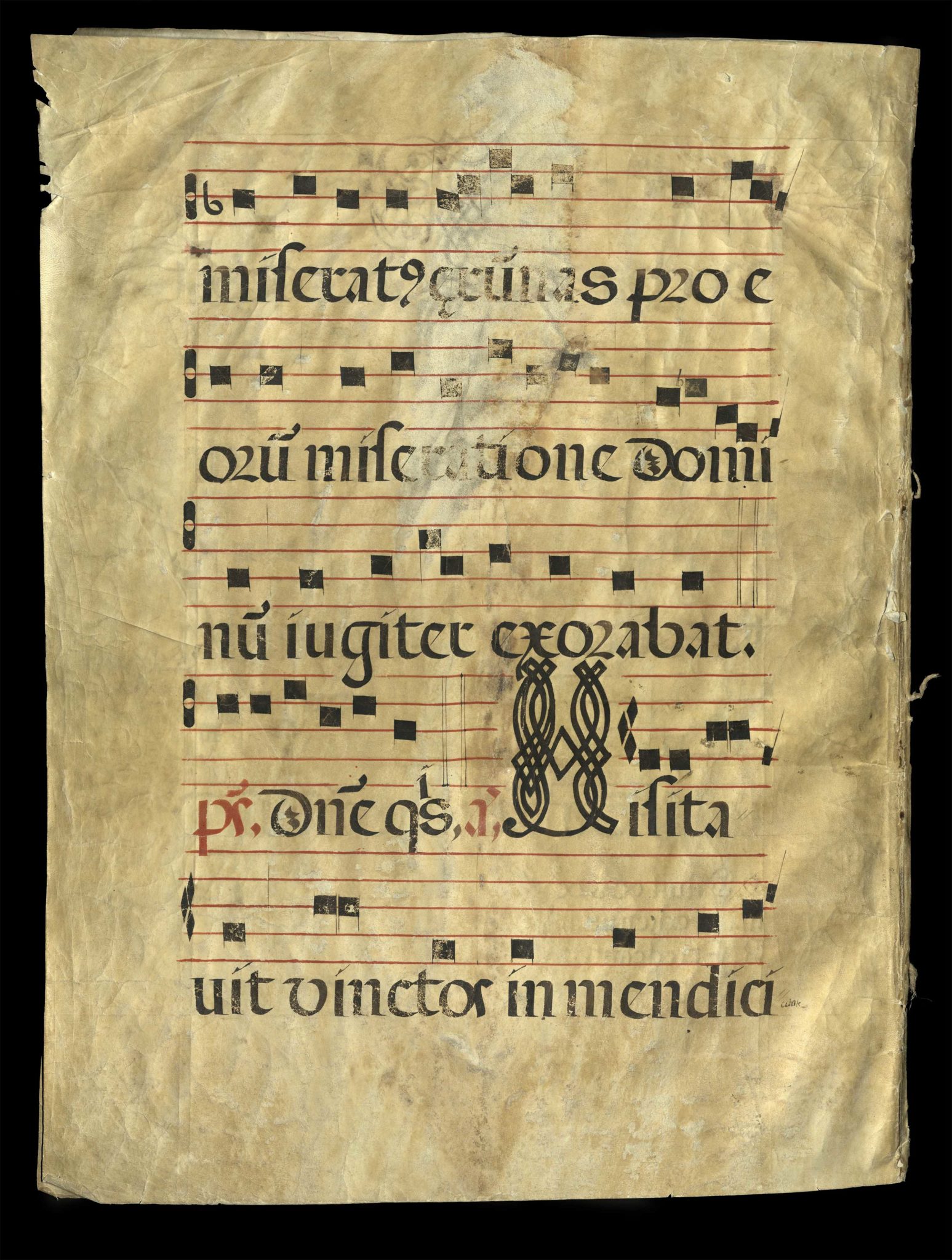
miserat(us) aerumnas pro e-
oru(m) miseratione Domi-
num lugiter exorabat.
Ps. D(omi)ne… Visita-
vit vinctos in mendici(tate
et ferro et vincula eorum disrupit.)
Having taken pity on the
hardships of the captives,
with compassion for them
he continually prayed to the Lord.
Psalm. O Lord… He visited
those bound in beggary
(and by the sword and he shattered their bonds.)
These hymns celebrate the life of St. Peter of Nolasco and are usually sung — with local variation — on January 28 or 31. St. Peter Nolasco, with St. Raymond of Penafort, was the founder of the Order of Mercedarians, the religious community which sent members as ransom for Christian prisoners in the hands of the Saracens. Details of his life are uncertain, but he was probably a native of Languedoc. After taking part in the crusade against the heretic Albigensians of Southern France, he became a tutor of King James I of Aragon and then settled at Barcelona. There he became friends with St. Raymond of Penafort, and in 1218, with the support of James I, they laid the foundation for the Mercedarians. Twice Peter went to Africa to serve as a captive, and it was reported that during one journey to Granada and Valencia he won the release from Moorish jails of some four hundred captive Christians. He was canonized by Pope Urban VIII in 1628. For the most part these texts are derived from the Mercedarian Breviary and were the antiphons and hymns sung at lauds in the morning and at vespers in the evening on the Feast of Saint Peter Nolasco.
~Transcription, translation, and commentary by James T. Svendsen, associate professor emeritus, World Languages and Cultures, The University of Utah
Parchment leaves from an Antiphonal, 16th c Italy/Florence/Sienna. Eleven parchment leaves from the Proper of Saints, Feast of the Blessed Peter of Sienna (16 Mar), Vespers/Matins.
“Text and music on thick, stiff parchment is continuous throughout the fragment. The feasts as written here celebrate the virtuous deeds of one Peter who showed a profound devotion to the Blessed Virgin Mary. He was honored for giving alms to the poor and was commanded by the Virgin to free captives. Thus, the feast may be linked to the Franciscan Piettro Pettinari (d. 1289), who attained the rank of Blessed (Beatus) in the Christian church and was renowned for these very activities. A local vigorous cult resulted in religious songs composed to him in the vernacular, and he even rated a mention in Dante’s Purgatorio.
~Description by Elizabeth Peterson, associate professor, Dept. of Art & Art History, The University of Utah, from Paging Through Medieval Lives, a catalog for an exhibition held November 2, 1997 through January 4, 1998 at the Utah Museum of Fine Arts.
Editor’s note: The commentary by Dr. Svendsen and the description by Dr. Peterson differ, each identifying “Peter” as different people, Peter Nolasco and Piettro (Peter) Pettinari (of Sienna). Dr. Svendsen, shown Dr. Peterson’s assessment, was politely firm about his identification. This is a perfect, lovely example of the different ways two scholars in two fields can approach an object, coming up with different results. In the case here, an esteemed Classicist and an esteemed art historian disagree, although the suspected dates of their protagonists have only about fifty years between them; one from Southern France, the other from Northern Italy — not so far apart.

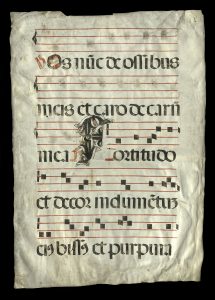
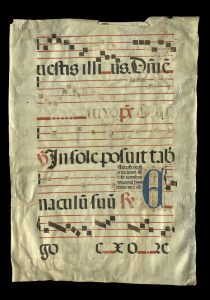
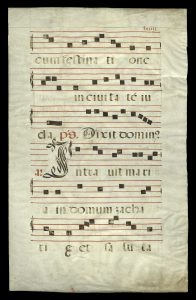
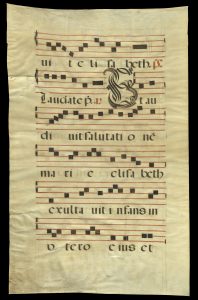
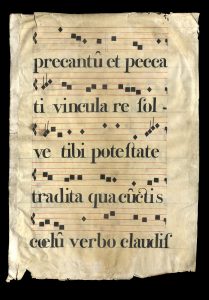
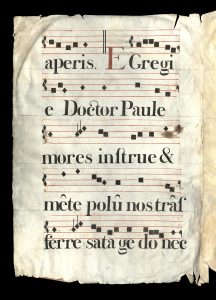
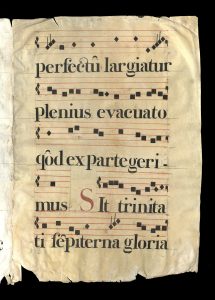
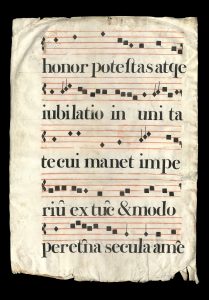
You must be logged in to post a comment.